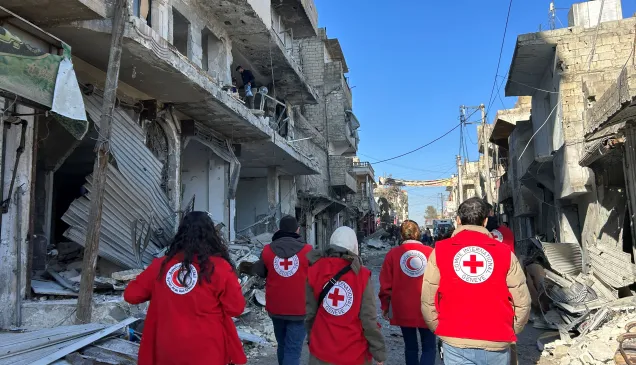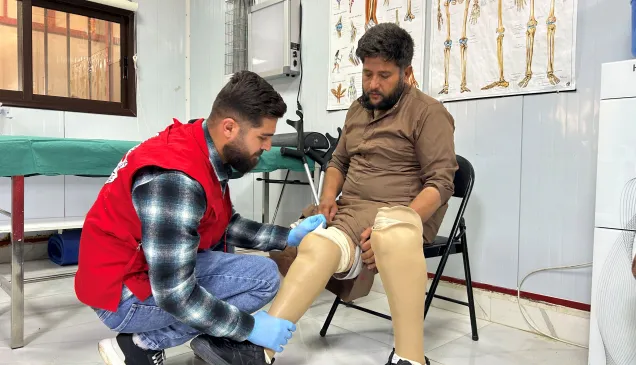Lebanon: Syrian refugee children receive treatment at ICRC hospital
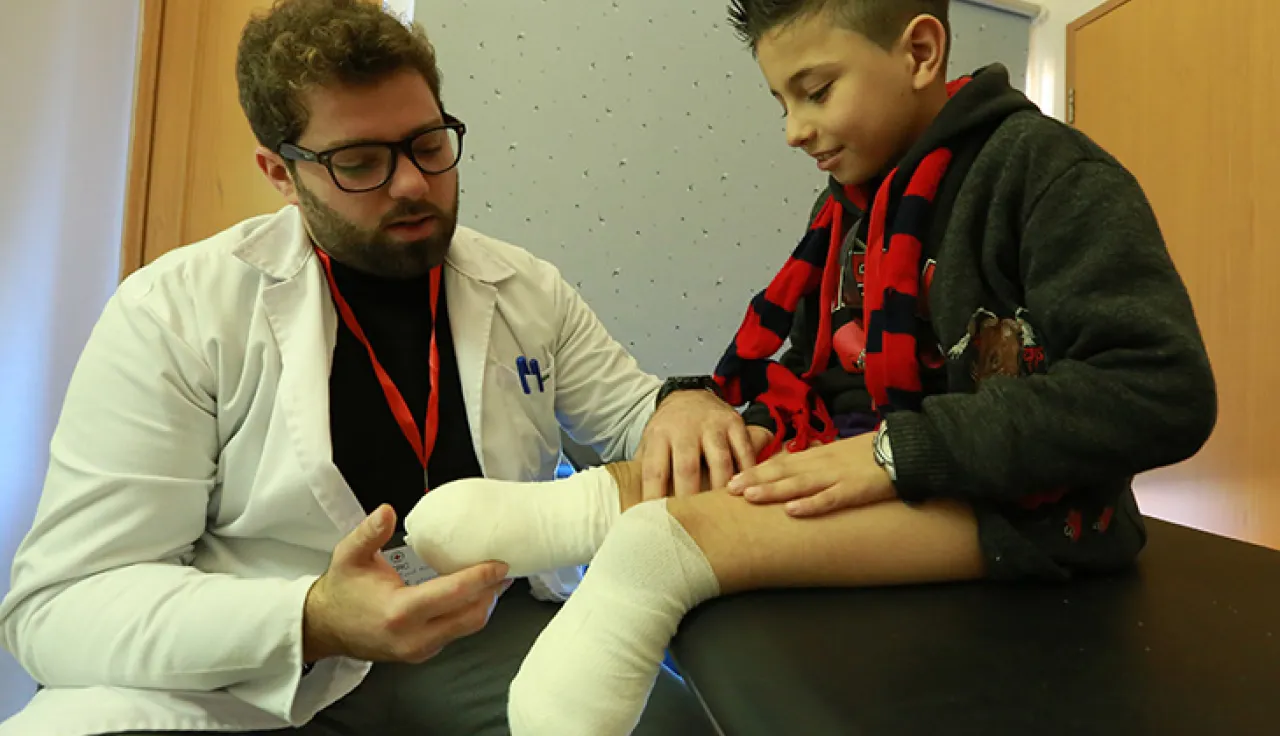
When he's not taking selfies on his mother's phone, nine-year-old Ahmad changes the dressing of his amputated legs and inspects his healing wounds on his own.
Four years ago in Idlib, Syria, a mortar fell near Ahmad's home where he was playing. He instantly lost both legs.
"Ahmad is the youngest of my five children", explains his mother, Yaman. "After he was injured, he had surgery and therapy before we moved to Lebanon in 2012, but it was not enough. Ever since the accident he has often been in excruciating pain."
Upon arrival in Lebanon, he underwent another operation, but the pain still didn't go away. Ahmad has been in the ICRC´s care at its Weapon Traumatology and Training Center (WTTC) for three months now.
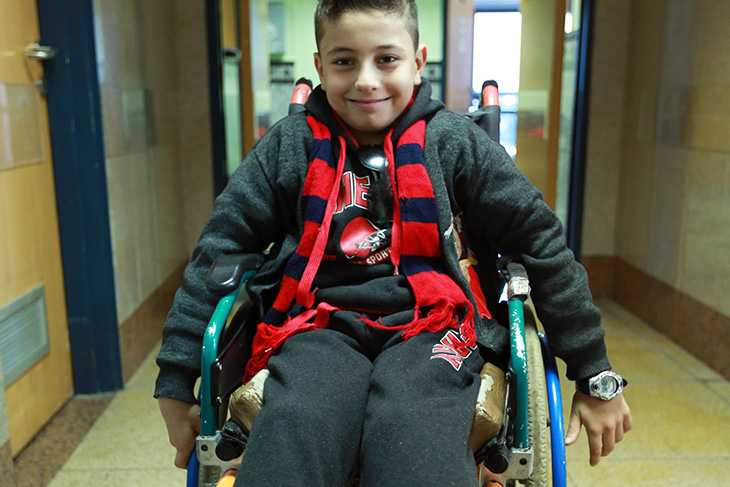
Ahmad was wounded in Idlib, Syria when a mortar fell outside his house where he was playing. CC BY-NC-ND / ICRC / Hussein Baydoun
The WTTC is a center for weapon-wounded surgery procedures as well as a training center for local surgeons, set up in September 2014 by the International Committee of the Red Cross (ICRC) in Tripoli, northern Lebanon, following an agreement with the Lebanese Ministry of Health.
The center offers surgical treatment as well as reconstructive surgery free of charge.
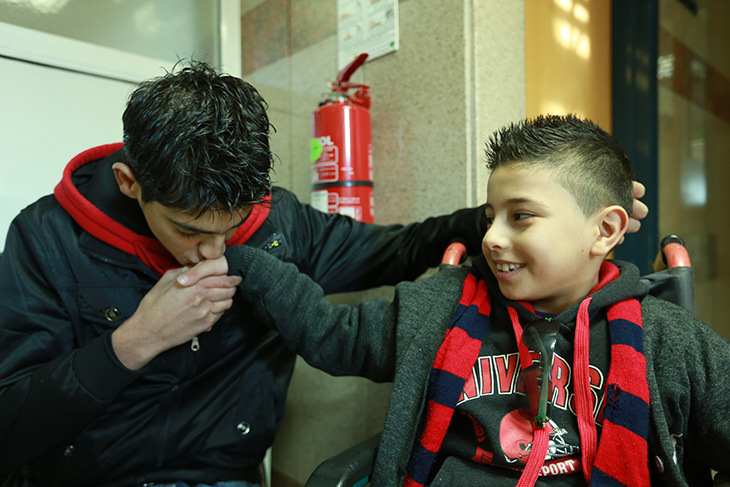
"Ever since we heard about the WTTC, it´s as if I finally have my child back. He is a different boy right now,"Ahmad´s mother said. CC BY-NC-ND / ICRC / Hussein Baydoun
Watching Ahmad, one can see his love for life shine through his smile. But when he first arrived at the WTTC, Ahmad was a traumatized little boy. He screamed whenever a doctor or nurse approached him. Often, he had to be sedated for the medical staff to do their work.
"He was afraid of everything and everyone. We tried to bribe and joke with him, but nothing worked," said Maj Gottarp, the ward nurse at the WTTC, adding: "At one point he screamed he wanted to die."
"Every experience he had gone through had been awful so we tried using play therapy," Ms. Gottarp explains. "We took a sponge and stitched it like the sutures in his legs. Then we invited him to play a game where he would be the doctor and have to remove the stitches from the sponge with our help".
Ahmad went from being terrified to being the star in this little play. He even asked if he could repeat the game. When it was time to have his real stitches removed, it took more than three hours but he never screamed throughout the whole procedure.
However, Ahmad isn't the only child caught in the crossfire of Syria's ongoing crisis to end up at the WTTC. In the room next to Ahmad is six-year-old Hiba from Homs in Syria.
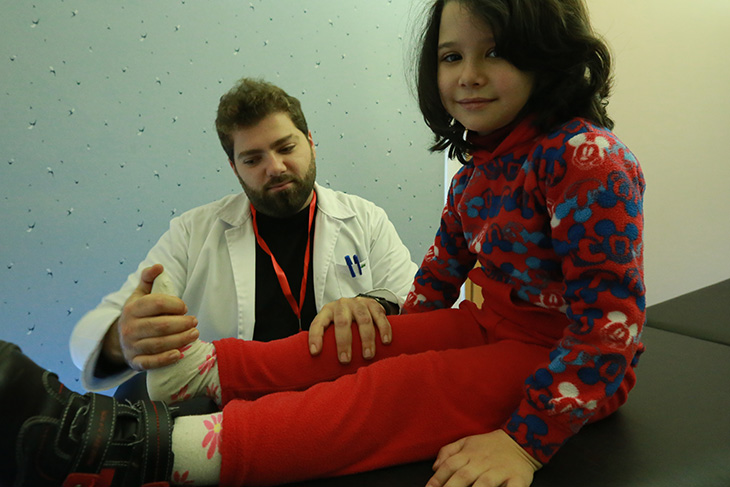
Six-year-old Hiba has been having therapy for four months at the WTTC after twice undergoing surgery. She was injured in Homs, Syria. CC BY-NC-ND / ICRC / Hussein Baydoun
Hiba's leg was injured two years ago when our house came under attack in Homs. She has been receiving therapy for four months at the WTTC after undergoing two operations.
Ahmad and Hiba have both missed out on school because of their injuries. Both their mothers hold on to the hope that their children will soon be fit enough to return to classes and grow up to be successful and help their communities. Their children's pain has brought the two women close to one another.
Hiba can feel the progress she's made and is proud of herself. All she wants now is to go back to school to be a surgeon.
Ahmad has also been nagging his mother about returning school.
I want two things for my son. To see him walk again and to see him finish his education. But above all I want to see him walking again without pain.
Supporting refugees in Lebanon
As well as running the WTTC in Tripoli, the ICRC also supports Lebanon's health facilities treating people who have fled from Syria, in particular by donating medical supplies and equipment.
The organization contributes to re-establishing links between family members who have lost contact or have been separated by the conflict in Syria and, where possible, facilitates family reunifications, giving particular attention to the most vulnerable, including unaccompanied children.
The ICRC has also provided material aid to people forced to flee the conflict, including Palestinian refugees from Syria and Lebanese returnees in several areas of the country.
To relieve the strain put on infrastructure and host communities by a massive flight of people from Syria as a result of the conflict, the ICRC has carried out water supply programmes across Lebanon. Over the past year, it has implemented major water supply projects in the Beqaa Valley and the south of the country, benefiting over 240,000 people, including about 90,000 refugees.

